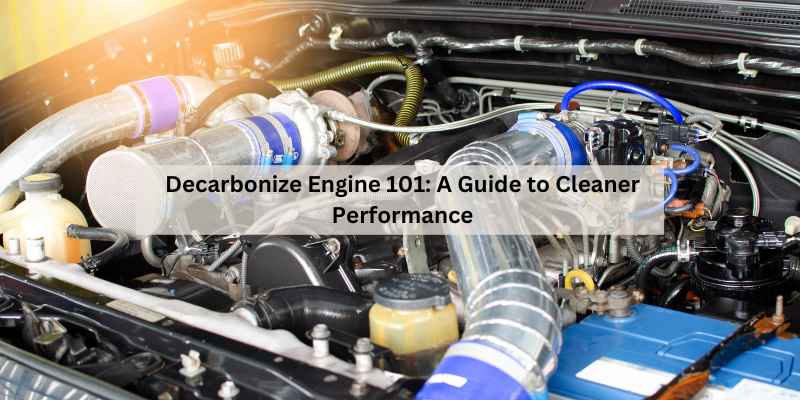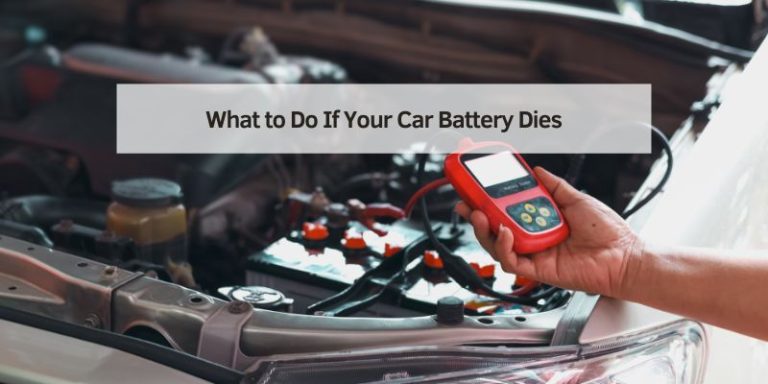Decarbonize Engine 101: A Guide to Cleaner Performance
Decarbonizing an engine involves reducing carbon emissions through cleaner fuels or advanced technologies. This process is essential for improving air quality and combating climate change.
Decarbonization of engines is becoming increasingly vital as the world faces environmental challenges. Traditional combustion engines emit harmful greenhouse gases, contributing to global warming. Transitioning to cleaner alternatives, such as electric or hydrogen-powered engines, significantly reduces these emissions. Innovations in engine design and fuel technology also play a crucial role in this shift.
Automakers are investing in research to develop more efficient systems that minimize carbon footprints. Governments worldwide are implementing stricter regulations to encourage this transition. As consumers become more environmentally conscious, the demand for decarbonized engines continues to rise, making it a key focus for the automotive industry.
Introduction To Decarbonizing Your Engine
Decarbonization is essential for engine performance. Carbon buildup can harm efficiency and increase emissions. It reduces fuel economy and causes engine damage. Regular maintenance helps prevent these issues.
Understanding carbon buildup is crucial. It occurs from incomplete fuel combustion. Factors like poor fuel quality and engine design contribute to this problem. High mileage vehicles are more likely to experience carbon buildup.
Signs of carbon buildup include rough idling, decreased power, and increased fuel consumption. Addressing these symptoms early can save money and improve engine health. Regular cleaning and using high-quality fuel can help maintain a clean engine.
Signs Your Engine Needs Decarbonization
Decreased performance and efficiency are common signs your engine needs decarbonization. You may notice a drop in power during acceleration. Fuel consumption can also increase, making trips more costly.
Unusual engine noises can indicate problems. Sounds like knocking or pinging may arise from carbon buildup. These noises suggest that the engine is not running smoothly.
Ignoring these signs can lead to bigger issues. Regular check-ups can help catch problems early. Keeping your engine clean ensures better performance and longevity.
Methods For Decarbonizing Your Engine
Chemical treatments are effective for decarbonizing your engine. They help remove built-up deposits. These treatments often use special compounds that break down carbon. Regular use can keep your engine clean and efficient.
Manual cleaning techniques are also useful. They involve physical removal of carbon deposits. Tools like brushes and scrapers can help. This method requires careful handling to avoid damage. Always follow the manufacturer’s guidelines when using these tools.
Both methods work well together. Chemical treatments can loosen deposits, making manual cleaning easier. Regular maintenance is key for a healthy engine.
The Role Of Fuel Additives In Engine Care
Fuel additives play a big role in engine care. They help improve performance and reduce emissions. Different types of additives can be used based on needs.
Types of Additives:
- Detergents: Keep engine parts clean.
- Octane Boosters: Increase fuel efficiency.
- Corrosion Inhibitors: Protect against rust.
- Stabilizers: Extend fuel life.
Choosing the right additive is important. Look for one that suits your engine type. Check the manufacturer’s recommendations for best results. Always follow the usage instructions on the label. This ensures safe and effective use of fuel additives.
Professional Decarbonization Services
Expect thorough inspections and detailed assessments of your engine. Professionals will use advanced techniques to remove carbon buildup. You will receive a clear report on the engine’s condition. High-quality service ensures your engine runs smoothly.
Choosing the right service provider is important. Look for experienced technicians who understand engine decarbonization. Check for positive reviews and customer feedback. Ensure they use eco-friendly products in their process. A reliable provider will offer warranties on their services, giving you peace of mind.
Diy Decarbonization: A Step-by-step Guide
Gathering the right tools is essential for successful decarbonization. Start with a socket set to remove engine components. A cleaning brush helps scrub away deposits. Use a vacuum to clear debris from the engine. A carbon cleaner spray will aid in breaking down tough residues.
Don’t forget safety gear! Gloves protect your hands, while safety goggles shield your eyes. A work light ensures you can see clearly in tight spaces. Finally, have a container ready for any leftover materials. Proper preparation makes the process smoother and safer.
Preventing Carbon Buildup In The Future
Regular maintenance is key for preventing carbon buildup. Check the fuel quality frequently. Use high-quality fuel to ensure better combustion. This can lead to less carbon in the engine.
Keep an eye on your vehicle’s fuel consumption. High consumption can indicate issues. Fixing these problems can help reduce carbon buildup.
Consider using fuel additives. They can clean the engine and improve efficiency. This helps in keeping carbon deposits at bay.
Always follow the manufacturer’s guidelines for maintenance. Schedule regular inspections and tune-ups. This will help maintain your engine’s performance and reduce emissions.
The Environmental Impact Of Engine Decarbonization
Reducing emissions is crucial for a healthier planet. Engine decarbonization helps lower harmful gases. This process reduces carbon dioxide and nitrogen oxides released into the air.
Cleaner engines mean cleaner air for everyone. It also protects wildlife and natural habitats. Decarbonized engines can lead to better health outcomes for communities.
Investing in engine technology is essential. It promotes sustainable practices and green energy solutions. People can enjoy the benefits of efficient and eco-friendly transportation.
| Benefits of Engine Decarbonization | Description |
|---|---|
| Lower Emissions | Reduces harmful gases in the atmosphere. |
| Healthier Air | Improves air quality for all living beings. |
| Protects Nature | Helps preserve ecosystems and wildlife. |
| Energy Efficiency | Enhances fuel efficiency, saving resources. |
Frequently Asked Questions
Is Decarbonization Good For Car Engines?
Decarbonization benefits car engines by improving efficiency and reducing emissions. Cleaner engines lead to better performance and lower maintenance costs. It also aligns with global sustainability goals, promoting cleaner air and a healthier environment. Embracing decarbonization is essential for the future of automotive technology.
Does Engine Carbon Cleaning Really Work?
Engine carbon cleaning can be effective in removing carbon deposits. It may improve performance, fuel efficiency, and reduce emissions. Results vary based on the vehicle and cleaning method used. Regular maintenance helps prevent excessive buildup. Always consult a professional for the best approach for your engine.
How Often Should You Decarbonize Your Engine?
Decarbonizing your engine is typically recommended every 30,000 to 50,000 miles. This interval helps maintain optimal performance and fuel efficiency. Regular checks and maintenance can extend engine life and prevent buildup. Always consult your vehicle’s manual for specific recommendations tailored to your engine type.
How Much Does It Cost To Decarbonize An Engine?
Decarbonizing an engine typically costs between $1,000 and $5,000. Factors influencing the price include engine type, condition, and the chosen decarbonization method. Regular maintenance can reduce costs over time and improve engine efficiency. Always consult professionals for accurate estimates tailored to your specific engine needs.
Conclusion
Decarbonizing engines is essential for a sustainable future. Implementing innovative technologies can significantly reduce emissions. Embracing alternative fuels and optimizing performance will drive this change. Together, we can foster a cleaner environment while enhancing energy efficiency. Every step towards decarbonization brings us closer to a healthier planet for generations to come.







